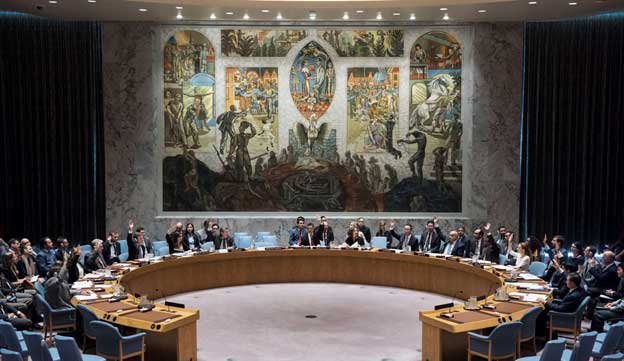A Single Seven Year Term for the UN Secretary General?

NEW YORK, Jun 15 (IPS) - Many UN supporters expressed disappointment that Secretary General Antonio Guterres said almost nothing, until last week, about police violence against African-Americans in the United States, or about the massive protest movement that has erupted and the repressive response to the protests by US authorities and police forces.
This moment of grievance towards UN silence and impotence prompts us to look for answers in the structure and history of the UN: why is it unable to call to account its most powerful member when the most basic rules of human rights and democratic conduct are so clearly violated?
The answer is that the UN was created in 1945 to operate under the control of its most powerful members – the United States, in particular, and also the other four Permanent Members of the UN Security Council (the United Kingdom, France, Russia and China).
The UN Charter makes this perfectly clear, but so also does the history of the Organization and the way in which it has grappled with global conflicts over the years. The Charter gives to the Permanent Members a near monopoly over the selection of the Secretary General.
Anyone holding this office has been carefully selected to avoid controversy and to act cautiously when it comes to these sponsors.
A variety of reforms have been proposed over the years to give the UN and its Secretary General more autonomy. NGOs and smaller states would like to see a stronger UN and a leader that could call the big powers to account.
Some have proposed more financial independence for the UN, so that major dues contributors could not withhold financial support as a means of pressure. A global tax could serve this purpose but mere mention of such a tax by a UN think tank drew such fire from Washington that UN officials immediately disavowed the idea.
Today the UN is teetering on the brink of insolvency in spite of its compliant posture.

Another reform idea is to make the Secretary General more independent of pressure from Permanent Members by changing the rules of the election process and by mandating a single, seven-year term.
A 1996 study by two former UN officials proposed the seven-year term as part of a larger reform project. Instead of the standard arrangement of two five-year terms, the authors proposed a single seven-year term in hopes of lessening the pressure that re-election inevitably brings.
http://www.ipsnews.net/2020/06/un-chiefs-silenced-big-powers-vetoes/
This idea is useful perhaps but not by itself a very powerful tool to shield the UN leader, as there are so many means of pressure and threats (and re-election is only effective, anyway, as a means of pressure in the first term).
No person acting as Secretary General can be unaware of the ultimate danger that too much independence can bring. Dag Hammarskjold, the greatest Secretary General of them all, died in an aircraft crash in Africa that most observers now believe was the result of a direct attack on his plane, organized with the direct involvement of three of the five Permanent Members.
More recently, Secretary General Kofi Annan, in his second term, made cautious statements that were critical of the US-UK role in the Iraq War. Washington and London read him the riot act and came close to removing him from office.
In the end, he was allowed to continue to serve, but most of his closest advisors were forced out of office.
Antonio Guterres knows UN finances are under threat and he knows that if he acts there will be serious consequences. If we want him to be able to speak out, we must insist on the transformation of his office and of the UN itself.
© Inter Press Service (2020) — All Rights Reserved. Original source: Inter Press Service
 Global Issues
Global Issues